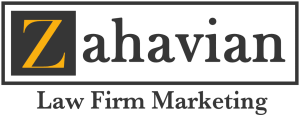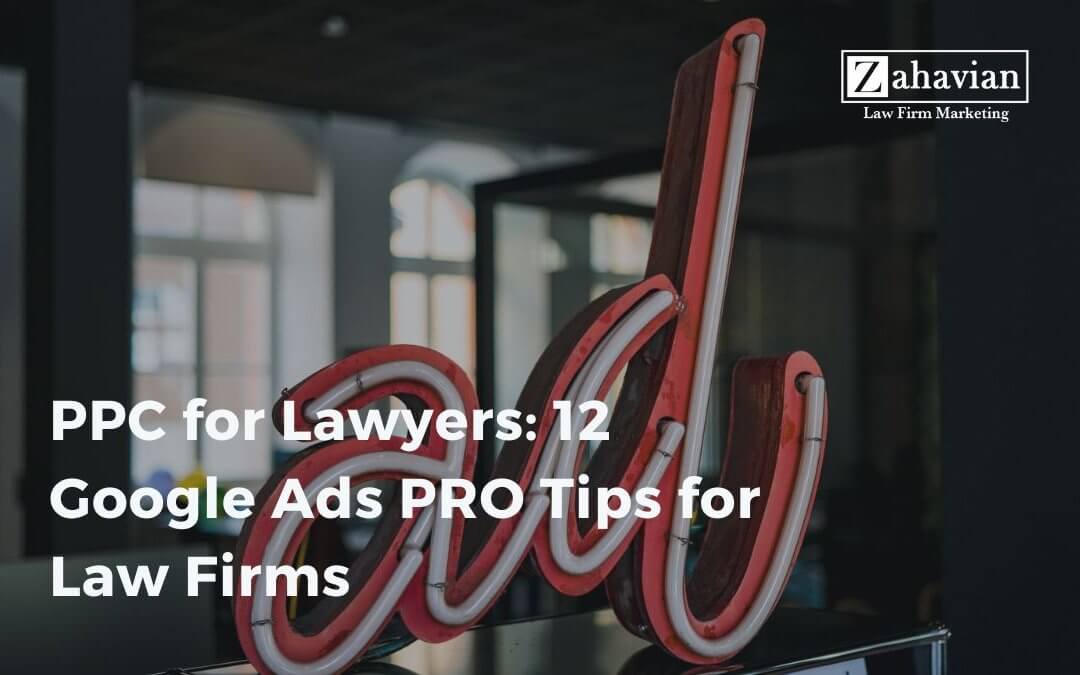PPC for lawyers is an attractive digital marketing option for many attorneys. When done correctly, Google ads can generate clients quickly for your law firm. If you’re not sure what you’re doing, pay-per-click can become expensive and make you wonder if Google Search Ads (formerly AdWords) works for lawyers at all.
For many law firms, Google ads can be an excellent source of leads. Unlike an SEO strategy, PPC for lawyers can produce results almost immediately. Additionally, many of the leads you receive may be ready to retain your services. However, this marketing channel is volatile and can be high maintenance.
To help you make the most of your PPC campaigns, in this article, I’m going to share the tips that we’ve used at Zahavian Legal Marketing to launch and maintain successful Google Ads campaigns for law firms.
Here’s a quick preview of what we’ll dive into:
- Define the key goals of your Google Ads campaign
- Research your target keywords
- Use Manual Bidding for optimal control
- Select your target locations
- Write compelling ad copy
- Use Ad Extensions
- Create a list of Negative Keywords
- Design relevant landing pages for your ads
- Improve your Quality Score
- Choose the best time to schedule your ads
- Use Local Services Ads (LSAs)
- Optimize your ad campaign’s structure
If you’re considering Google Ads or PPC, you know either through first-hand experience or from others that search engine marketing can be a powerful lead generation source. At the end, I’ll give you my professional opinion regarding the best online marketing strategy for law firms.
1. Define the Key Goals of Your Google Ads Campaign
When you and your partners come up with a plan for your law firm, there is a clear objective that you want to accomplish. The same goes for your PPC campaigns. Most Google ads campaigns for lawyers focus on getting new leads and phone calls.
In other words, these campaigns are directed towards people that are “are ready to sign up” (known as transactional keywords). But just like you, many other attorneys using Google search ads are looking for the very same type of leads. So, all of you will be bidding on the most competitive (and therefore, oftentimes the most expensive) keywords.
Some examples of these keywords are:
- Personal injury lawyer near me
- Personal injury lawyer san francisco
- Family lawyer free consultation
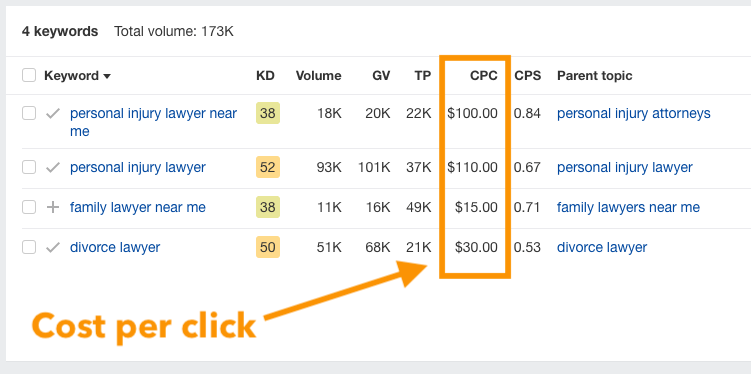
But what if the goal of your PPC campaign wasn’t to get phone calls immediately? What if you’re looking to build your email list or promote a free resource that your law firm prepared?
Well, in that case, you’ll be targeting a different type of person. A person who is not necessarily ready to buy, but rather looking for information. Some searches that these people may do include, but are not limited to:
- How to file a divorce in Florida
- How much is my personal injury case worth
- How to prove pain and suffering
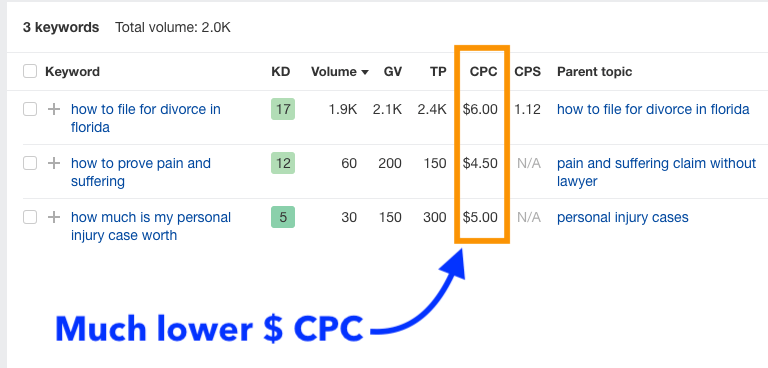
Going after people that are looking for information is a relatively innovative and unexplored approach for many attorneys. The goal here is not to get clients as fast as possible, but to sign up fewer clients immediately and instead build your email list. By growing your email list, you capture leads earlier in the hiring process and get the opportunity to nurture these leads through your emails. This allows you to demonstrate expertise as well as promote your services and the benefits of hiring your firm.
The advantage is that you’re going to pay far lower CPC prices for these types of keywords that other law firms are ignoring. And if you deliver valuable information via your email campaigns, they’re more likely to retain your services when they’re ready to hire an attorney.
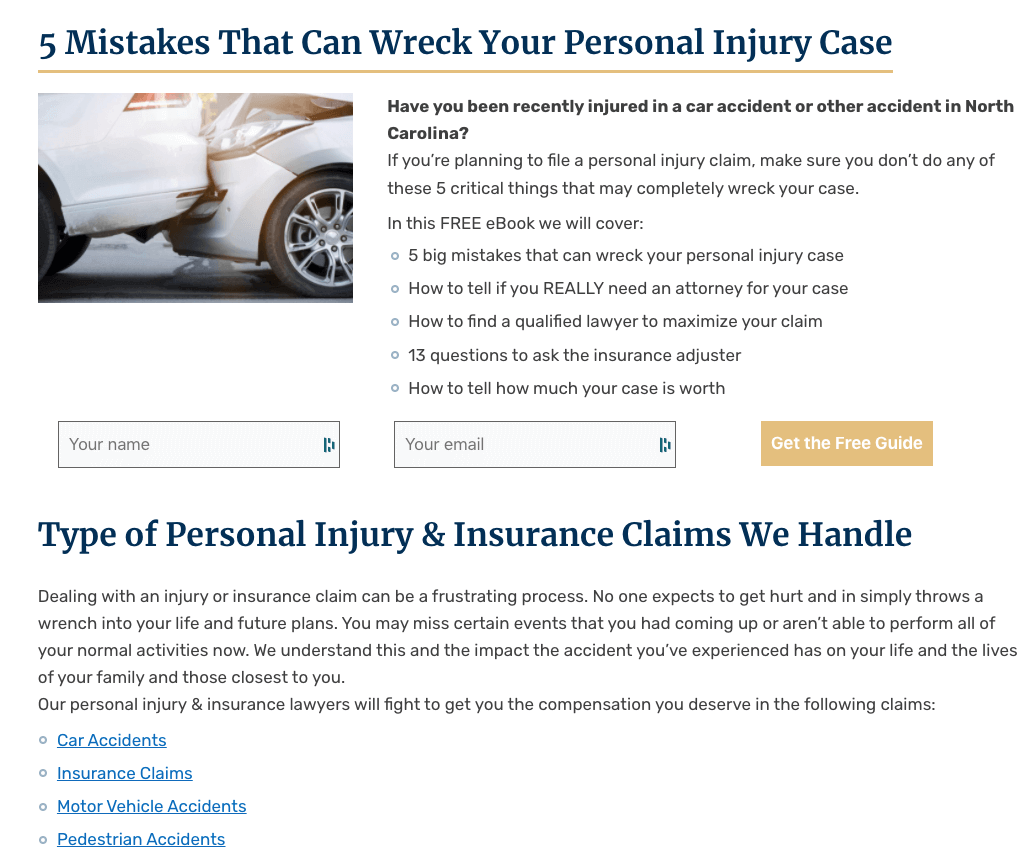
Moreover, your landing pages should also include:
- Lead magnet (the free resource) email opt-in form
- Contact form or live chat
- Your Firm’s phone number
Just because your keywords and campaign goal might be targeted to building an email list, there will be a portion of visitors (although smaller) that do decide to fill out your form or call your firm immediately.
2. Research Your Target Keywords
An essential part of PPC ads for lawyers is the list of keywords that you’re going to be targeting. In simple words, these keywords are the specific searches that will trigger your ads to appear on Google.
For example, these lawyers want their ads to show every time someone types “car accident lawyer los angeles”:
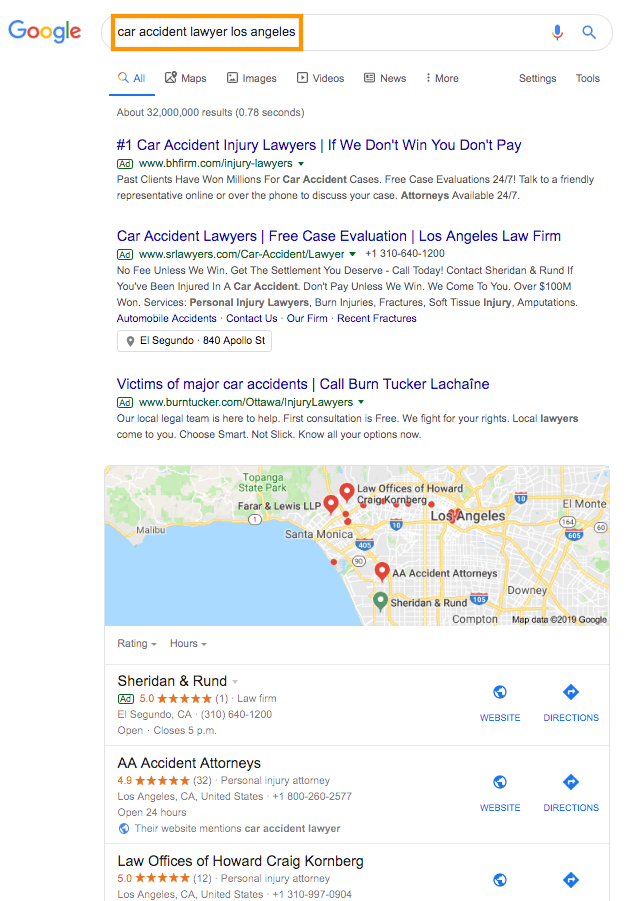
When it comes to law firm PPC, keywords should be closely related to the type of cases that your firm is looking for. To control lead quality and reduce your costs, you should start with a tight set of keywords.
For instance, if you add the keyword ‘lawyer near me’, your ads could show on any related keywords such as “family lawyer near me”, “bankruptcy lawyer near me” and so on. Check what happens if a personal injury lawyer uses the broad keyword “car accident los angeles”:
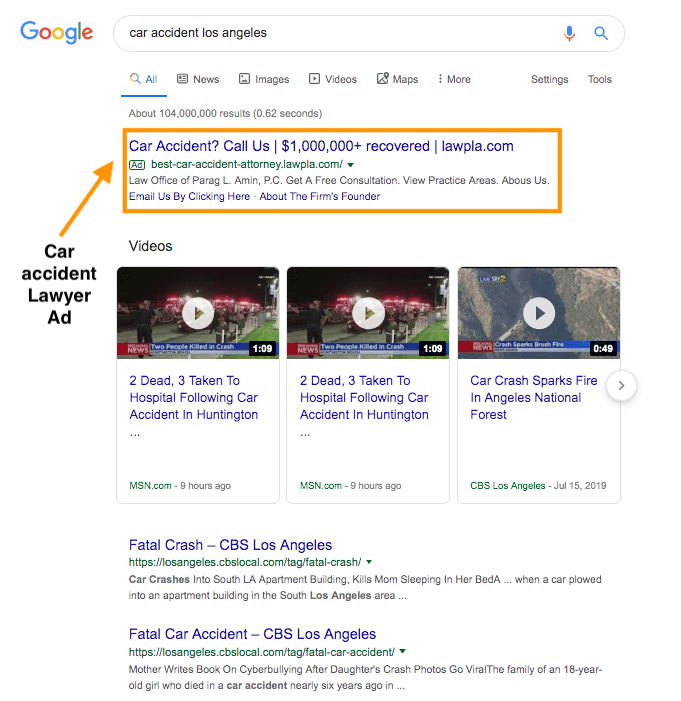
This is an informational keyword. Meaning that, when people type it in, they expect to see news about recent car accidents in this location. They’re not looking for a lawyer. This is why identifying the best keywords for your campaign is so important. It is remarkably close to a very lucrative keyword, but the search intent is quite different.
Google Ads allows you to do your keyword research. This is very helpful since it can give you a better idea of the volume, competition, and cost for each keyword. You can find the Keyword Planner under “Tools & Settings” in your account.
Before you start adding keywords to your campaign, make sure you understand the concept of keyword match types.
Pro Tip: Use the feature Dynamic Keyword Insertion (DKI) to make your ads more relevant for people. By doing this, Google will insert your campaign keywords into your ad copy to match the search that a person is doing.
3. Use Manual Bidding for Optimal Control
One of the major disadvantages of PPC for lawyers is that it can become very expensive. We already established that, overall, most competitive keywords are more expensive. And this is understandable.
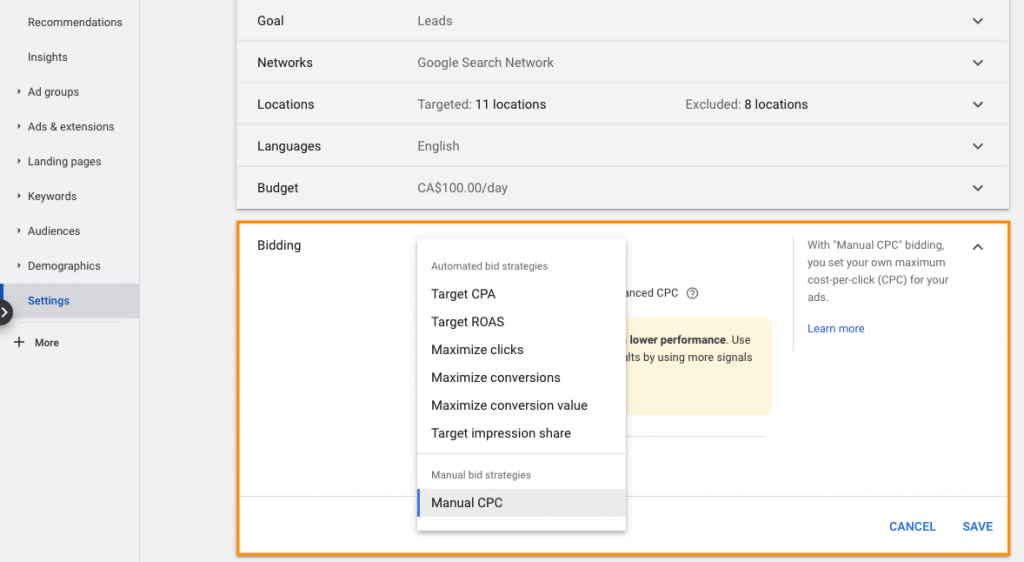
However, if you want to be careful with your budget, make sure that you choose ‘manual bidding’ over ‘automated bidding’.
Let me explain how these options work.
With automated bidding, you’re allowing Google to set the price that you’ll pay for your ads. This means that, based on other competitors, Google will check your profile and will determine how much you need to pay to increase your chances of getting more clicks. So, if your competitors are paying high rates, the platform may decide that you need to pay more.
On the other hand, with manual bidding, you get to set the maximum price that you’re willing to pay for your ads. So, in this case, you have total control over your budget. The key to keeping your costs as low as possible is improving your ad rank and quality score. More on this later.
4. Select Your Target Locations
Another important advantage of Google ads is that you can control the geographical location where your ads will appear. To put it simply, if you set your ads to be shown in Phoenix, a person looking for similar services in Tucson won’t see them.
This is a critical feature that you should use to improve the quality of your leads and protect your budget. If your law firm only serves certain locations, there’s no need to spend money on ads that will be shown at a state or national level.
When running PPC ads for lawyers, you or your ads manager need to make sure to choose your ideal locations. You can target by city, postal code, state and control them by implementing radius.
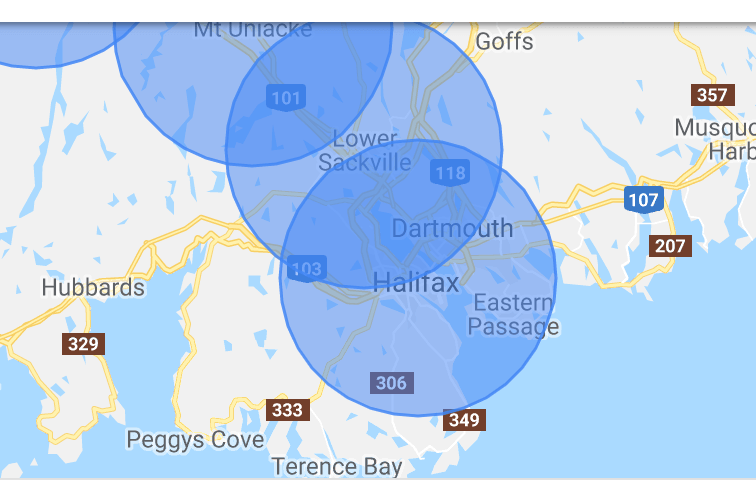
Make sure to also choose your type of geographic targeting. You can choose to target ads to users that are within your targeted areas or opt to include people that might be outside of the area, but are performing a search using a location-based keyword for one of your target areas.
Pro Tip: If your law firm has multiple locations, you could create separate campaigns for each one of them. This has benefits in terms of controlling budgets for different areas, among other controls at the campaign and ad group levels.
5. Write Compelling Ad Copy
Selecting keywords and the location is just the beginning of a PPC campaign. The ad copy is an important element that you shouldn’t overlook since it’s the thing that people are going to see displayed on Google.
If it’s attractive, clear and relevant to them, they’re more likely to click on the ad. If not, they’ll go to the next one.
The things that your ad copy should include are:
- Final URL: link to a relevant landing page for this ad group. For example, the ‘child support’ ad group, your landing page URL might contain “/child-support/” to show it’s relevant to these searches.
- Heading 1: use this heading for your main keywords.
- Heading 2: include relevant information such as locations you serve, promotions, what makes you different from others, etc.
- Heading 3: insert call to actions. The action you want people to take such as ‘book a call’, ‘schedule an appointment’, ‘free consultation’, etc.
- Description: include slogans or what you can do to help people.
Check this example:
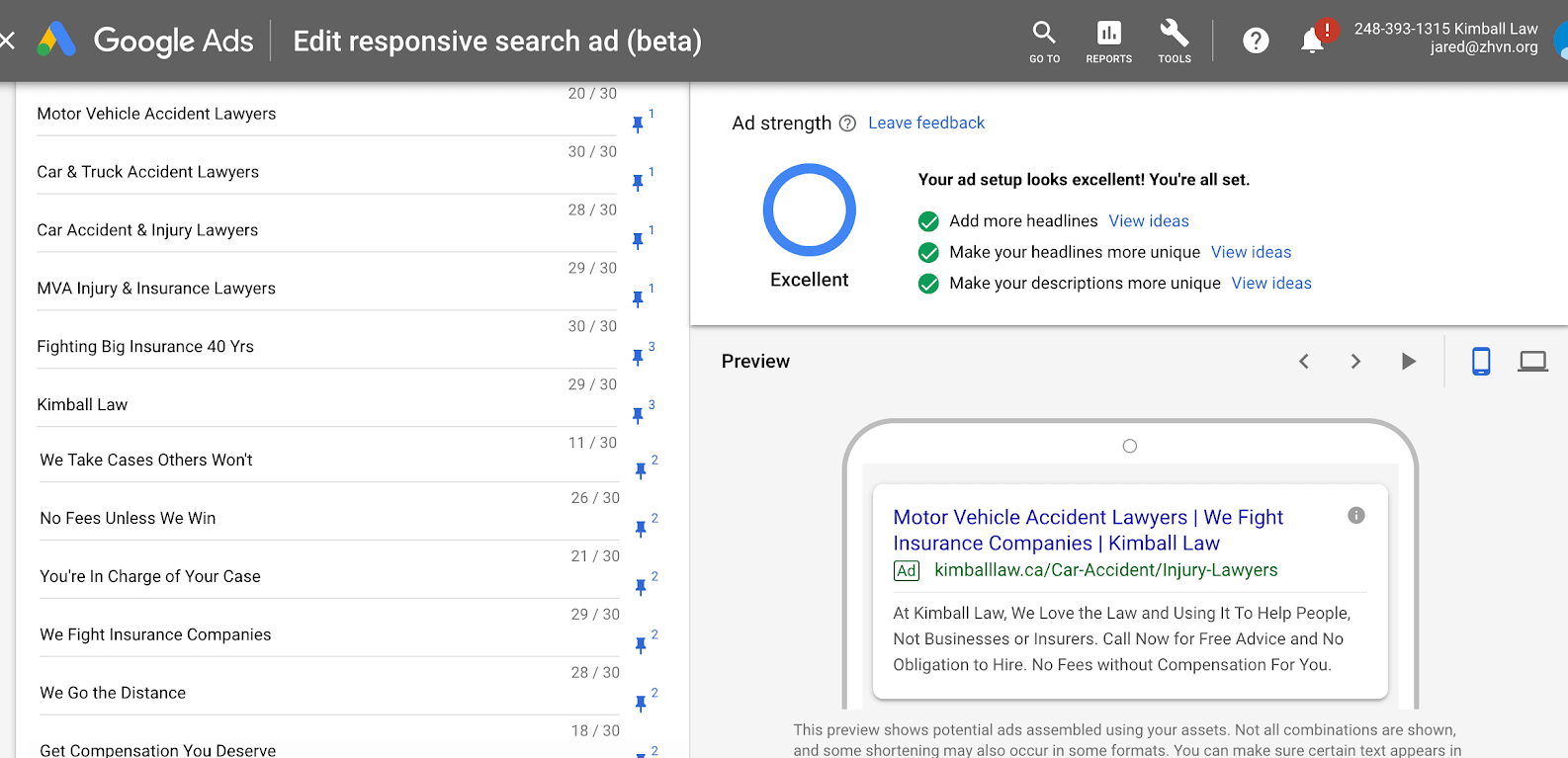
As you can see, Google can give you a quick evaluation of your ad copy and some suggestions of how to improve it to make it more relevant. So, if you’re not sure about what to write, you can follow these suggestions.
Pro Tip: For better results, separate your types of cases into different ad groups. That way you have better control over the keywords and you can provide more relevant copy for each one of them.
6. Use Ad Extensions
Ad extensions allow you to add extra information in your ad about your business. You can include phone numbers, benefits, links to your website, address and services you offer.
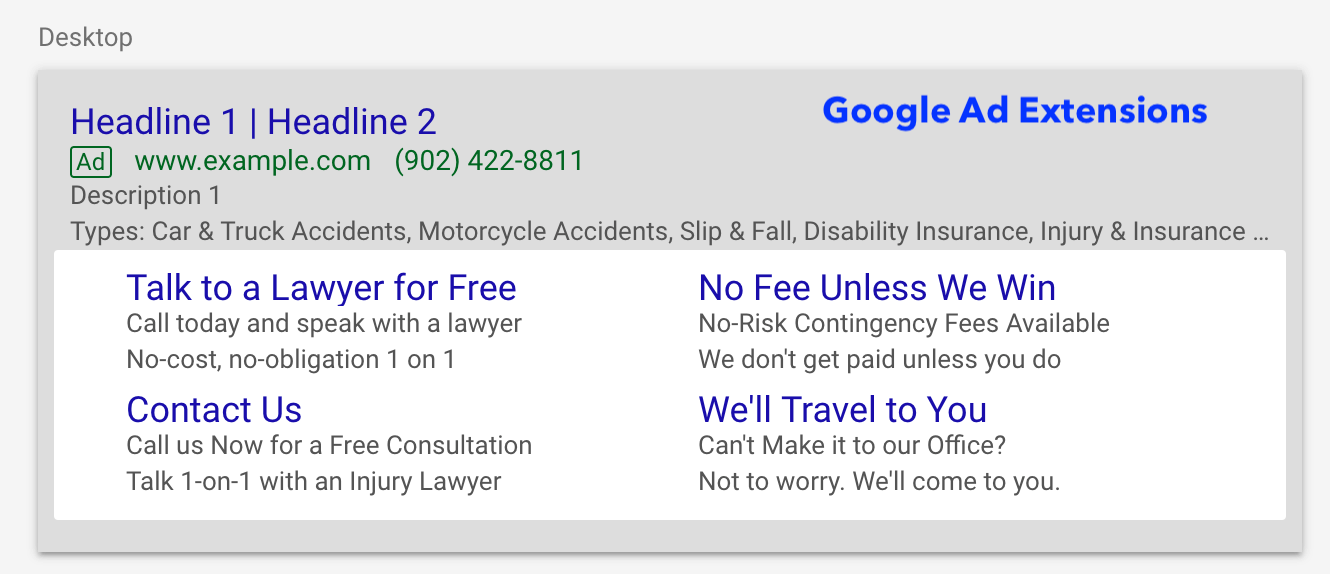
Using ad extensions not only makes your ad bigger and more prominent than your competitors, but it also provides more information to your potential clients. As you can see in the example above, there are plenty of ad extensions that you can use depending on your goals and your law firm’s particulars.
7. Create a List of Negative Keywords
Just as you need relevant keywords to trigger your ads, you also want to identify negative keywords. In simple words, negative keywords are irrelevant searches for you and, thus, you don’t want your ads to appear when people are typing them.
This is the mechanism that allows you to tell Google which search terms you don’t want your ads to appear for.
For example, we’ve seen multiple personal injury lawyers showing up for terms like “personal injury lawyer salary” or “personal injury job occupations”.
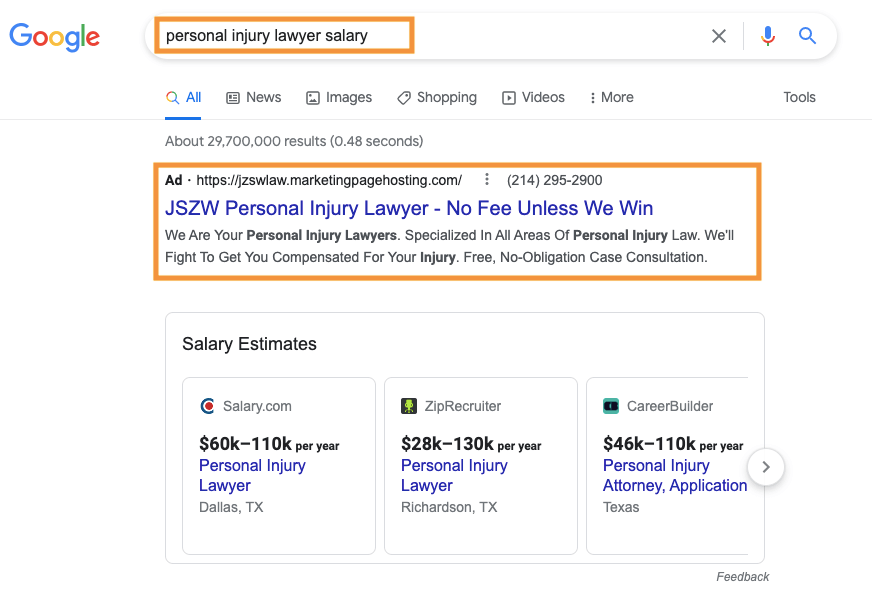
These are negative keywords because people are looking for information about working as a personal injury lawyer, not hiring one. If your firm shows up for these searches, it’s a quick and easy way to blow your hard-earned ad budget.
As you can see, these types of keywords won’t generate leads or brand awareness.
There are plenty of keywords that may waste your budget. For that reason, you should create a thorough list of negative keywords. You can copy and paste some of these negative keyword ideas into your list:
| Competitor brands | Job offering | Informational | Low fee services |
| Insert your biggest competitors’ names and brands | “offer” “cv” “career” “job” “part time” “recruiting” “salaries” “internships” | “how” “should I” “when” “who” “do I” “meaning” “price” “step” | “free” “pro bono” “affordable” “legal advice” “cheap” |
Your negative keywords can be added at an account level. Here is a quick tutorial on how to do this.
Pro Tip: Some of your negative keywords will depend on the goals of your campaign (see tip #1). As you start gathering more data from your campaigns, you’ll be able to identify more negative keywords to add to your list.
8. Design Relevant Landing Pages for Your Ads
As you may already know, when people click on your ad, they will be redirected to your website or a customized landing page. To increase the quality of your ads and the number of appointments, your landing page should be relevant to that specific ad.
Let me give you an example.
If a person clicks on a car accident lawyer ad, they expect the content of the website to be related to this legal matter. They’re not interested in a generic personal injury page that talks about dog bites, long-term disability and similar cases.
The same goes for location. Check out the image below to see how we can re-use the same landing page and change the location so that the ad is relevant to local keywords.
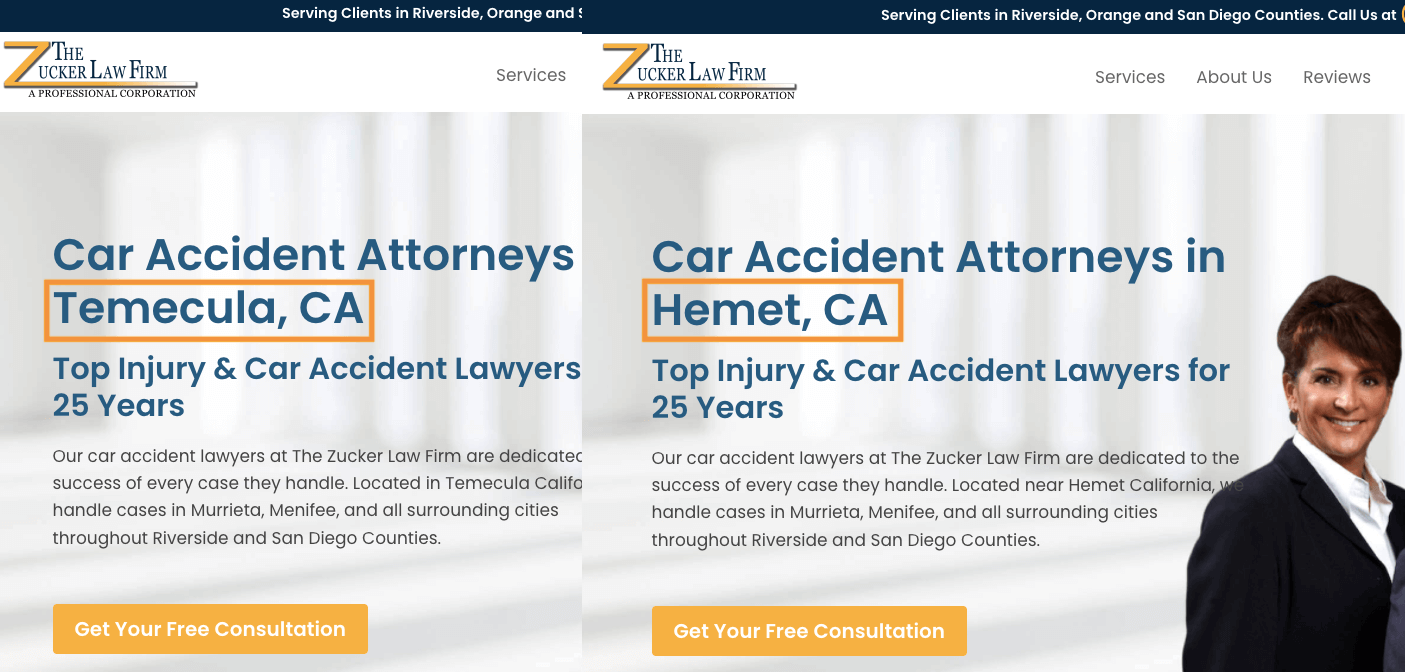
Google also evaluates how relevant the content of the landing page is in relation to your ad copy. Although the content of your landing page is very important, don’t forget about the user experience.
What I mean is that, on top of having relevant content, your landing page should also be fast, easy to navigate, mobile-friendly and have clear call to actions. Having these elements figured out will increase quality score and may help you decrease your costs.
Pro Tip: If you already have pages on your website for your specific types of cases, you can use those as landing pages as long as they’re relevant for your ads.
9. Improve Your Quality Score
Google search ads for lawyers work like an auction. The winners of the auction will have their ads displayed in the first positions. However, unlike regular auctions that are mostly based on who pays more, Google pay-per-click search ads are based on something called Ad Rank.
Ad Rank is calculated by multiplying your Quality Score times your max cost per click (CPC), which is the maximum amount that you’re willing to pay for a click on your ad:
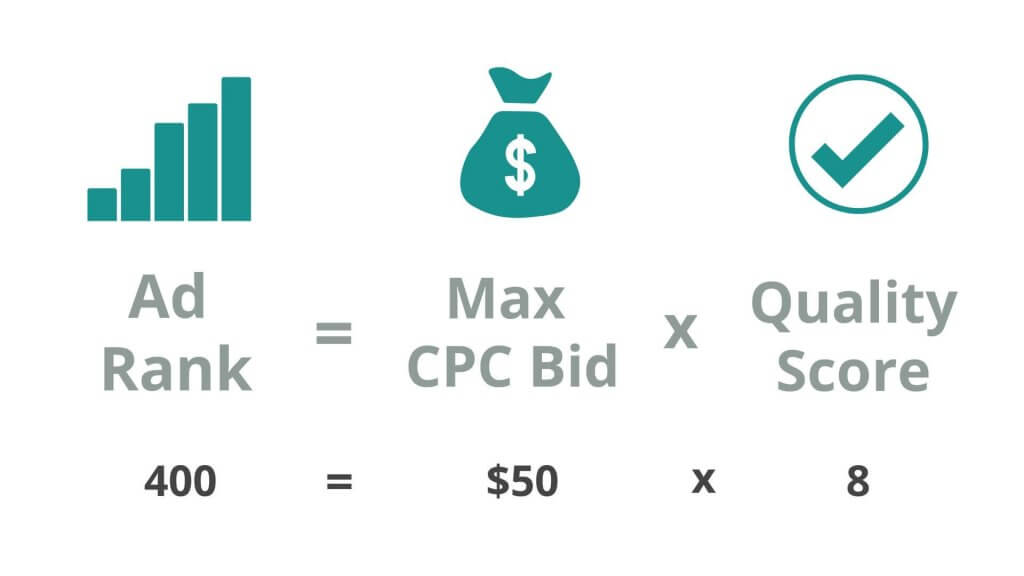
As you can imagine, the person with the highest Ad Rank wins the auction.
Many people improve their Ad Rank by simply increasing their budgets. This strategy can work, but it can also be expensive.
The easiest way to improve your Ad Rank is by increasing your max CPC bid, but the best way is by improving your Quality Score.
Quality score is a score out of 10. This value evaluates the quality of your ads in relation to your competitors. Having a high score not only allows you to improve your ad position (Ad Rank), but also reduce your costs.
| Max CPC Bid | Quality Score | Ad Rank | Ad Position | |
| Advertiser 1 | 25 | 10 | 250 | 1 |
| Advertiser 2 | 20 | 7 | 140 | 3 |
| Advertiser 3 | 35 | 5 | 175 | 2 |
You can extract better performance from your campaigns by ranking higher on the page, since ads near the top have higher click-through rates (CTR), which is a fancy way of saying your ads get more clicks.
To improve your Quality Score, you need to check:
- Landing page experience
- Ad relevance (copy)
- Expected click through rate
10. Choose the Best Time to Schedule Your Ads
Another useful setting that you can implement in your PPC campaigns is scheduling your ads. The time you run your ads depends on what type of action you’re expecting your leads to take. Let’s take phone calls as an example.
So, a lawyer optimized his ads for phone calls, did an amazing job with his landing page and copy. He displayed his law firm’s number on the landing page and let his ads run all day and night, even after the law firm closes at 5pm.
A person sees this ad at 8pm, clicks on it and calls. No answer, so they go to voicemail. Perhaps they leave a voicemail, perhaps they move on to the next search result on Google. I don’t know what’s worse, losing that lead or having spent money on that lost opportunity.
For firms that use a 24/7 call answering service, this is a non-issue. But many don’t. Many lawyers benefit from scheduling their ads during business hours because it allows them to connect with their leads when they call.
However, if this is your law firm’s first PPC campaign, you may want to wait a few weeks before implementing a restricted schedule. This way, you can start collecting data to determine the best times to schedule your ads.
11. Use Local Services Ads (LSAs)
Google is all about user experience. In other words, they want to ensure that people using their products are satisfied with them. This is why they’ve rolled out Local Services Ads (LSAs).
For potential clients looking to hire a lawyer, Google will show them “trusted” attorneys in their area. Google will also provide them with quick information about the lawyer, such as reviews, phone numbers and business hours.
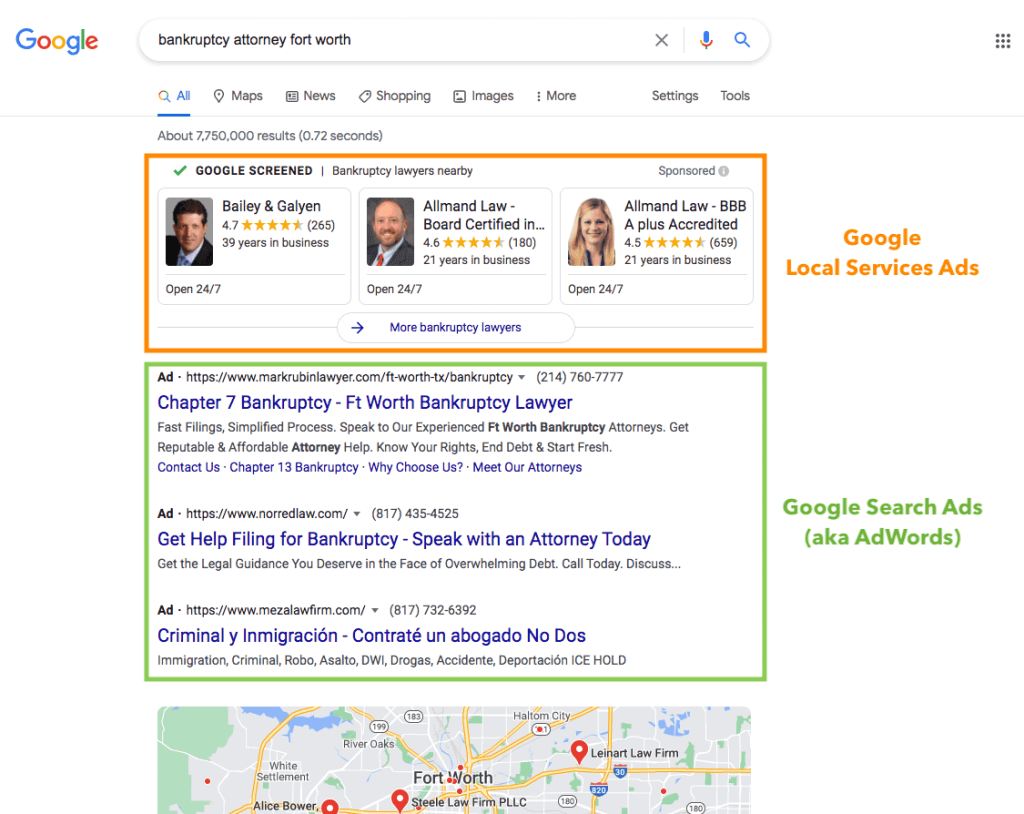
With Local Service Ads, potential clients are not directed to a landing page. If they click on the ad, Google will provide them with more information about this lawyer and the law firm they work for. Instead, they will be able to call or message the firm.
These new Google ads for lawyers charge you per lead, which is a great alternative to paying for clicks. So, if you want to do some experimentation, you should consider trying this option.
12. Optimize your Ad Campaign’s Structure
The Google Ads platform is big and has many features to help marketers in their advertising campaign. However, it can be complicated to understand, which can lead to disorganization. This can increase your costs and harm your campaign’s success.
Being organized seems like trivial advice. But trust me, good structure is key. We’ve seen messy PPC campaigns failing because the budget was being spent in the wrong places and people weren’t aware of it. It makes measuring performance, ongoing maintenance, testing and optimization more difficult.
Here are some things you can do:
- Provide a descriptive name for each ad campaign: naming your campaign is not the moment to get creative. Be as clear and descriptive as possible, so next time you track your ads, you know what you’re looking for. You can name your campaign based on: the type of case, objective, campaign type and bid strategy (if you’re doing some experimentation with your bid). So, it would look something like: “Car accident – Leads – Search – Manual Bid”.
- Organize your ads and keywords into ad groups: each of your ad groups should contain specific keywords and ads for a type of case. For example, family lawyers can have ad groups for divorce, child support, spousal support, adoption and child custody. As you can imagine, the copy and keywords used for these types of cases will be different. So, it’s best to keep them separate.
- Prepare specific ads for each adgroup: a person that is looking for an adoption lawyer is unlikely to be interested in a divorce ad. This way your ads can have specific and relevant copy for the type of cases you want to advertise, neatly organized into groups.
Pro Tip: As its name suggests, an ‘ad group’ is a group of ads. Take full advantage of using ad groups to organize your ads and keywords based on case types (or target locations). This makes for better and more relevant campaigns as well as controlling and managing them.
Conclusion
PPC for lawyers is a good option for law firms that want to generate clients fast. However, it can be expensive and requires careful, ongoing management. It’s also linear. In other words, it’s not as stable and cost-effective as a strong and well executed SEO strategy. I’d like to note that while we believe this at Zahavian Legal Marketing, this statement is reductive. If you want to find out why we think that, check out Law Firm SEO vs PPC.
If you want to discover how SEO can help your firm, book a call with me.
